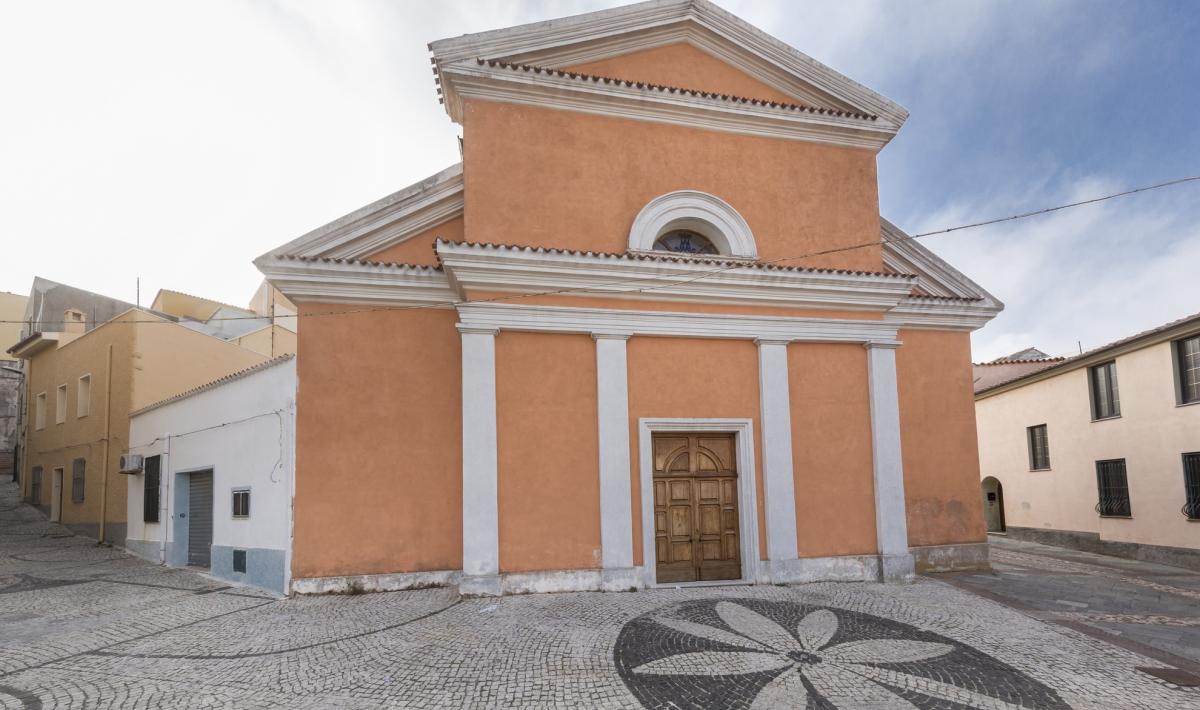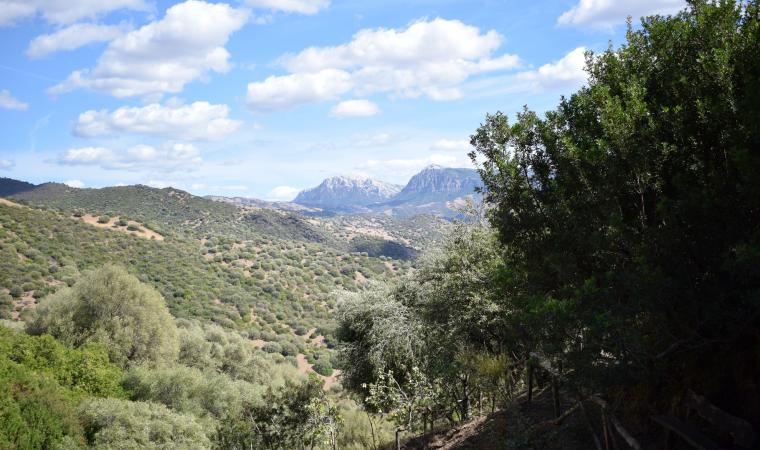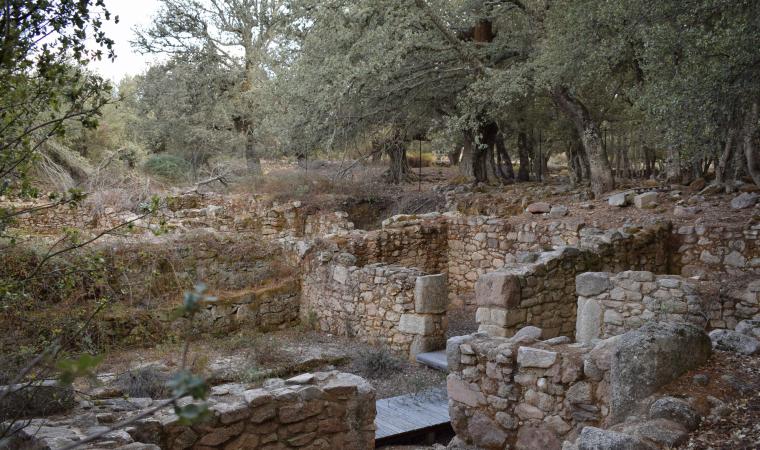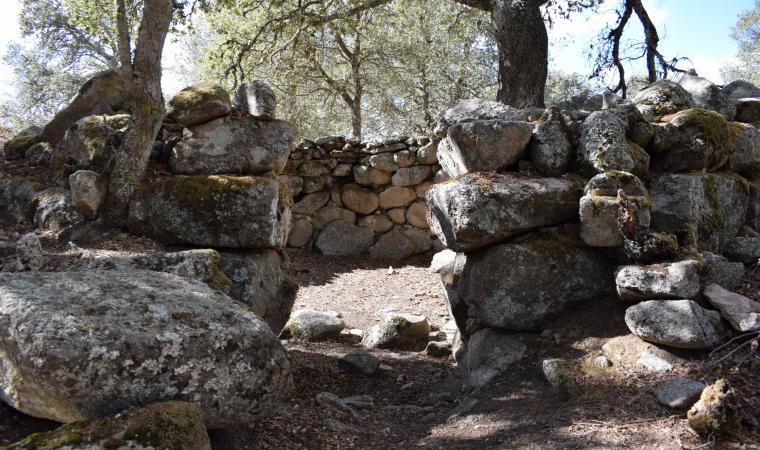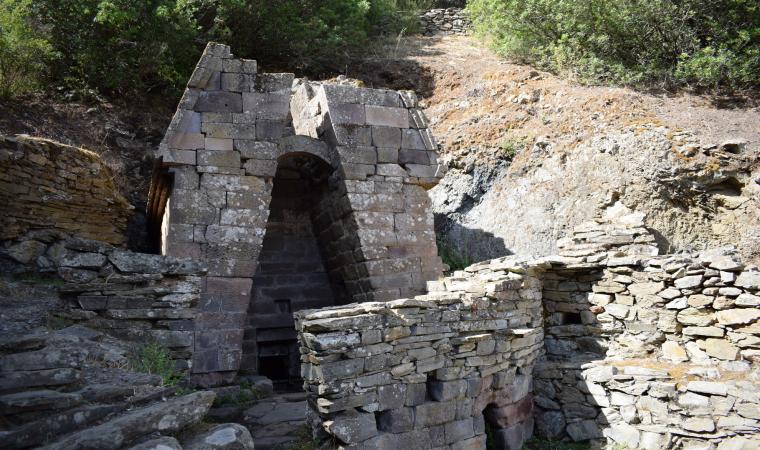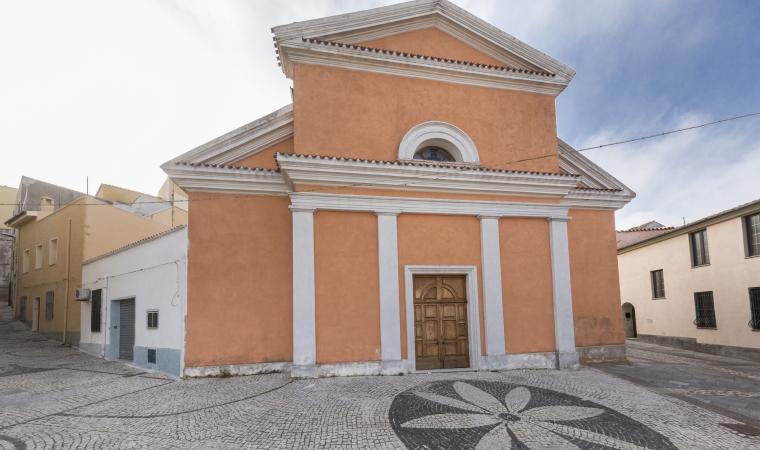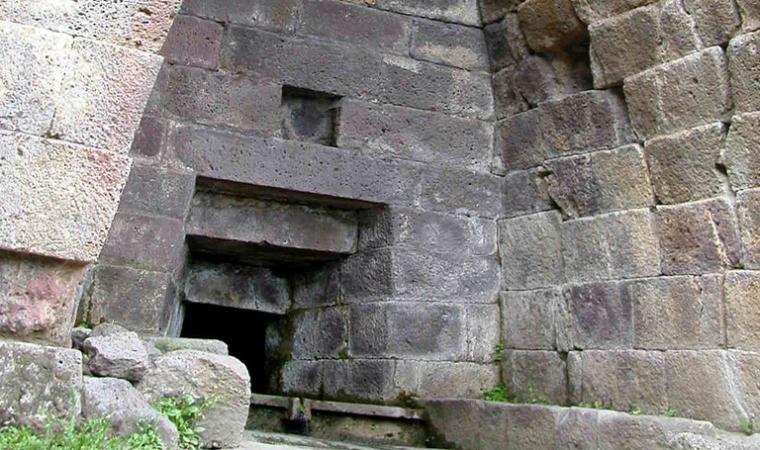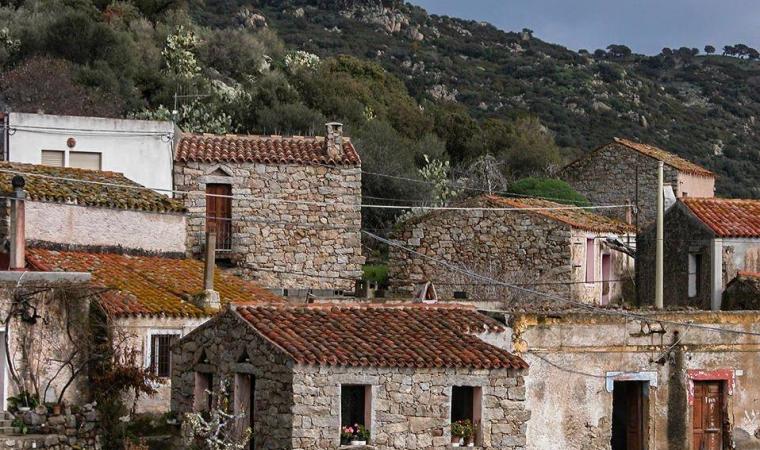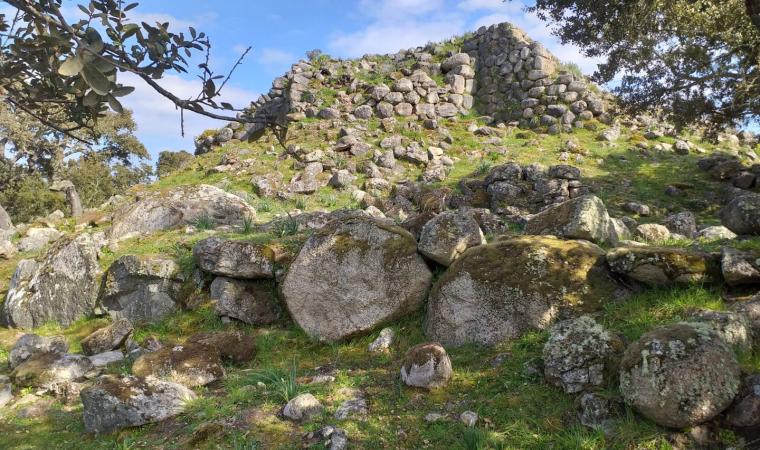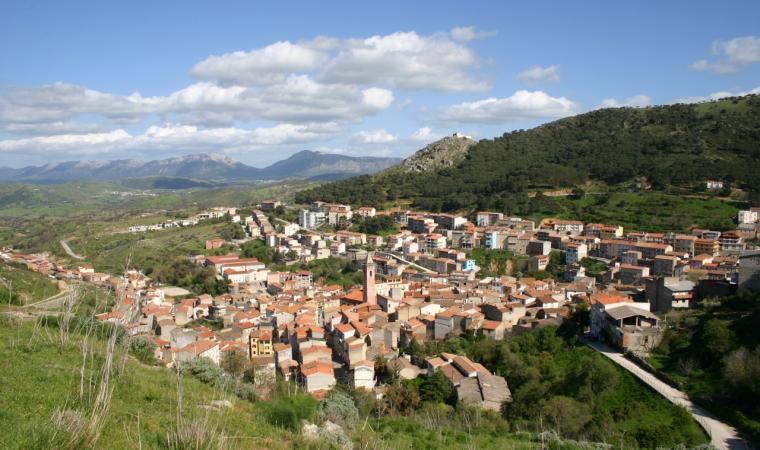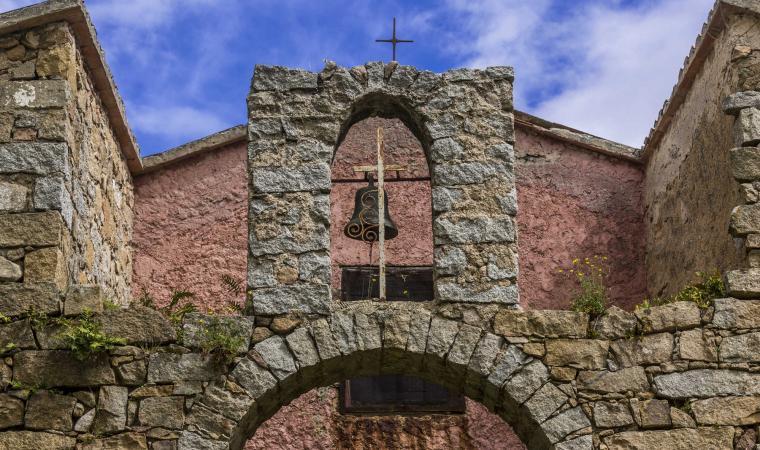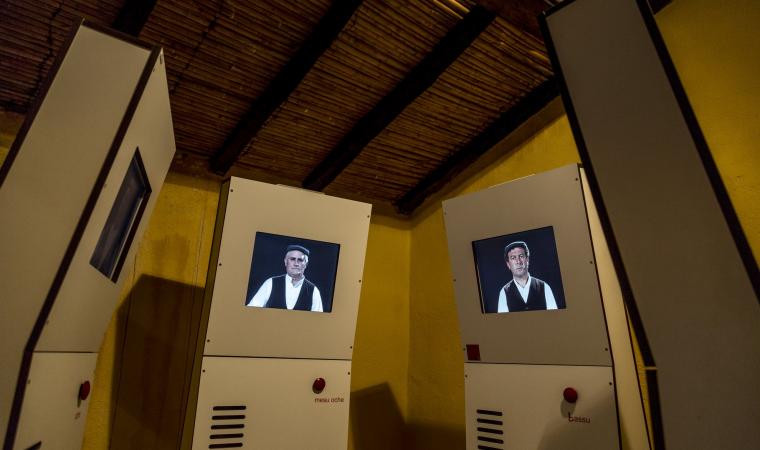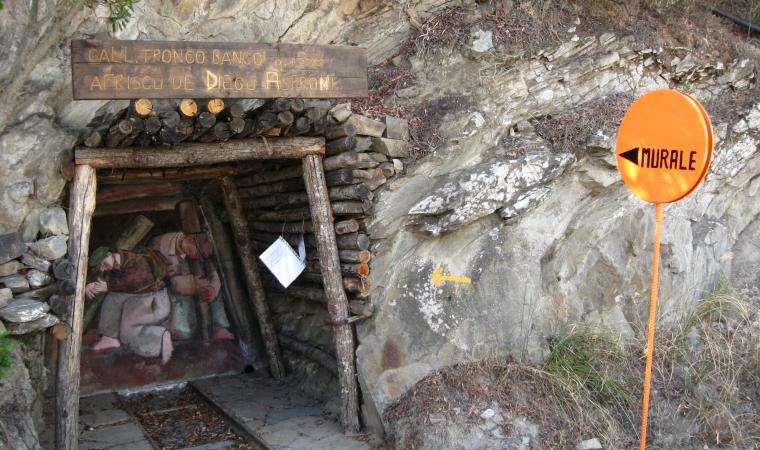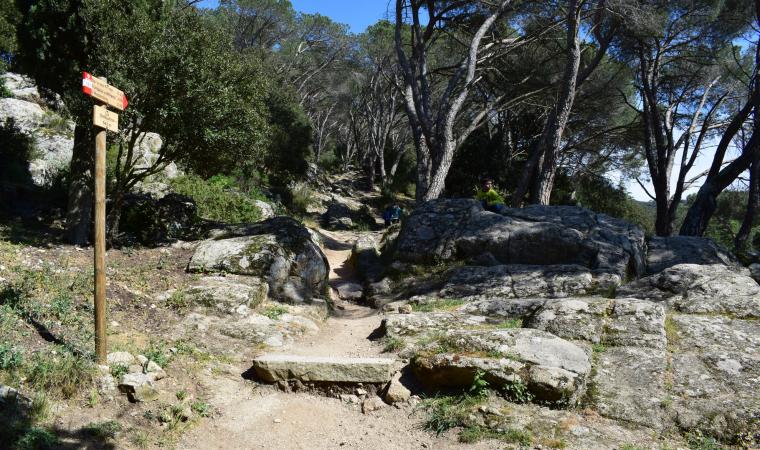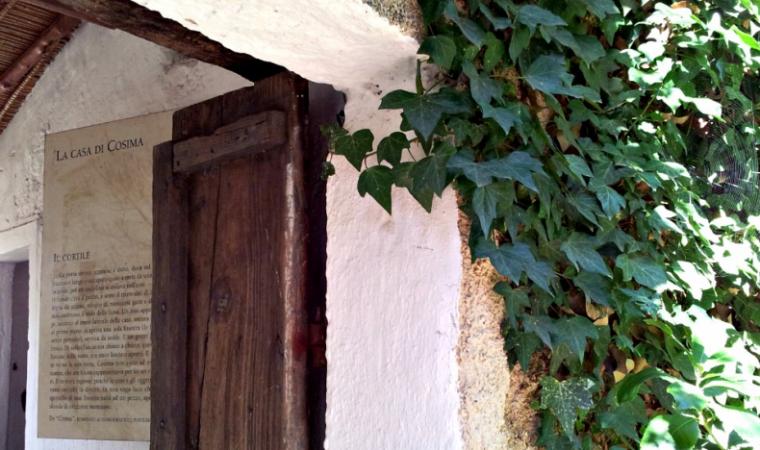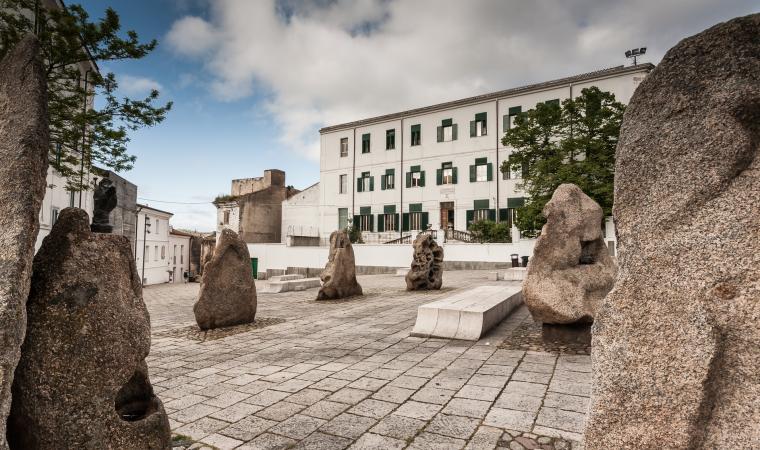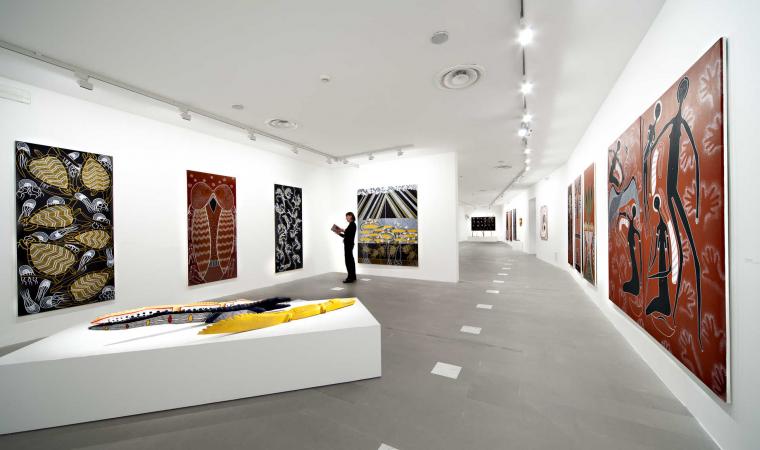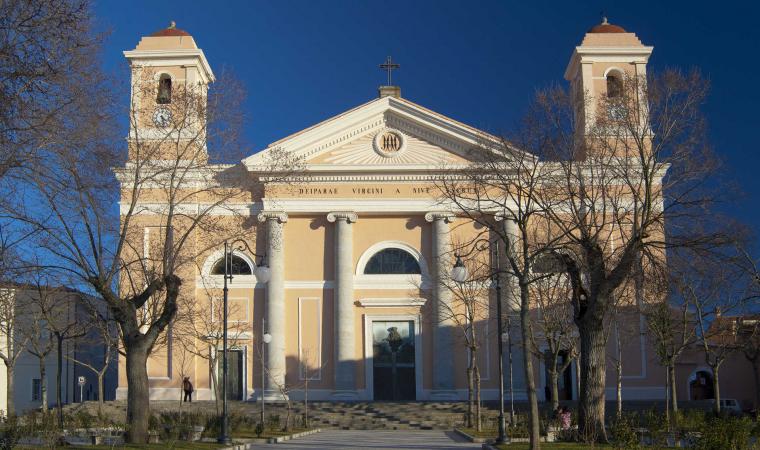“It is an ancient village, closed to the outside world, where (…) practices, habits, customs and the most distant popular traditions still remain, along with intelligence and the value of an energetic and, at the same time limited life, full of expressive abilities, individual strength and solitude”. This is how the writer, Carlo Levi, described the village in 'Tutto il Miele è finito' (All the Honey is finished) (1964), expressing intense impressions of Orune, a municipality in the Nuoro area, with over two thousand inhabitants, located at an altitude of nearly 800 metres, between the peaks of three mountains. Its name comes from the Greek word oros, meaning mountain. From up there, the view stretches from Barbagia to Baronia and from Logudoro to Gallura. There are granite elevations and deep valleys, occupied by holm oak and cork oak forests and kept moist by springs.
In the village, there is the parish church of Santa Maria della Neve with beautiful murals, the church of Santa Caterina and the elegant Casa Murgia (dating back to the early 20th century). The village owes its fame to the art of manufacturing, especially carpet weaving, velvet clothes, hand-sewn footwear and cork-work. You will be charmed by the traditions: the Cantu a Tenore, UNESCO Intangible cultural heritage, the cuisine (homemade pasta, carasau bread, roast lamb and suckling pig, boiled sheep meat, pastries) and the celebrations, Fires of Sant'Antonio Abate and Santu Biasu at the beginning of the year, August festivities of the Vergine del Carmelo and of Su Cossolu and Sas Animas at the end of October.
Vestiges from the past cover the Orune territory, which was already inhabited in the Neolithic era, as is demonstrated by the Dolmen of Istithi and the Menhirs of Sas Predas' Ittas. Evidence of the Bronze Age can be seen in about ten Nuraghi, in the village of Sant'Efis, where coins, tools and a precious processed glass goblet were found, and above all in Templar fonts and wells. Walking through the countryside, you will find the sacred well of Lorana, the temple font of Su Lidone and the splendid well-temple of Su Tempiesu, placed against a schist wall, where the spring water gushes. Built at the end of the Late Bronze age with perfectly processed trachyte and basalt ashlars, it was already frequented in the Iron Age: it is an architectural gem and one of a kind. At the entrance to the temple, there is a vestibule with jutting walls, counter-seats and spaces for offerings. At the back, a flight of four steps leads to the tholos (false cupola) room, with a paved floor, where water from a vein of spring water is collected. The roof is exceptional: it is a double sloping roof with double sculpted eaves, on top of which there is an acute-angled triangular tympanum. In flood periods, the water overflows and then flows through a channel in a second small font. In the little well, numerous bronze votive offerings were found: rings, bracelets, pendants and, above all, little statues portraying people making offers, warriors and characters 'in command'.

